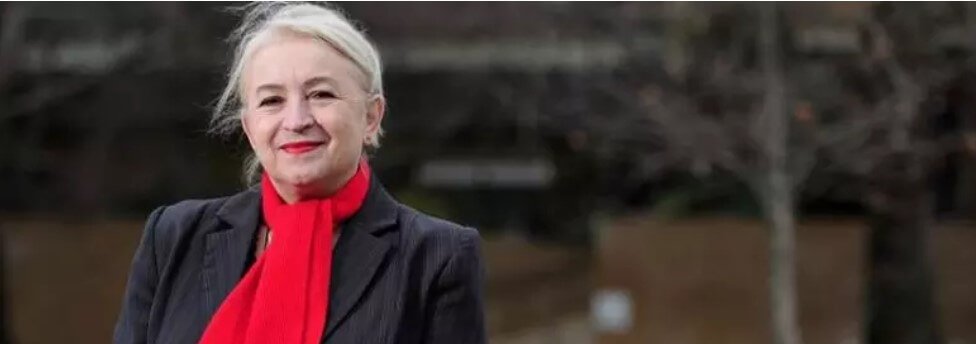COVID and the real cost of avoiding social media in the public sector.
Among its many disruptions, COVID-19 has deeply shaken the public sector’s default response to social media. At a time when government agencies face massive social media waves of citizen queries and concerns, most have been forced to scramble talent from other teams, interstate or the private sector.
There simply isn’t the widespread knowledge of how social media should be used to engage citizens, particularly in a crisis. But for me, the really fascinating aspect is pinpointing where this challenge originally comes from. Why the mad rush to find people?
Because social media skills and knowledge have been undervalued – and even actively avoided – across many public sector agencies. Leaders have limited their participation for fear of the unknown. Public servants across the board have been told to say nothing online or risk losing their jobs. And even teams dedicated to social media tasks have had to operate with minimal funding and resources. This general avoidance of social media has created a widening gap, as citizen expectations accelerate well beyond a stagnant public service.
Enter COVID: that gap has now been exposed in full.
Public servants and social media – how much has changed?
Though the following post was originally written in October 2018 in the wake of the landmark Twitter violation court ruling against Trump, the barriers faced by most public servants looking to learn more about social media remain largely the same.
COVID has reminded the public sector that it needs to change. And fast.
While its threat and impact is certainly not behind us, the risk of social media complacency is not COVID-specific. If leaders fail to prioritise social media skills development across the public sector, any peak event – natural disasters, security issues, major policy changes – will reveal the true disconnect between the way citizens want to engage and the way the sector responds.
The consequences? Constrained trust, inefficiencies and an inability to make fast decisions at a time when citizens are at their most vulnerable.
Let’s restart the conversation.
Public servants cannot change without the right social media guidelines.
While there is a clear case and need for the public sector to build its digital skills capability, a number of risk concerns still exist. Just what legal rights do Australian public servants have over their social media profiles (or not have, as the case may be)?
An interesting aspect to the recent Trump ruling: the US President was adjudged to be no different from anyone else holding public office in America. According to the court ruling, no public servant has the right to exclude someone from online debate – to do so is “unconstitutional”.
So what does this mean for Australian public servants – not just those in high-profile positions but across all government agencies? Are they at risk of court order or public scrutiny for blocking users or taking other actions on social media?

Given my lack of legal knowledge and qualifications (and a bias towards encouraging public servants to increase use of social media…), I sought the expertise of someone with both. Kelly Godfrey, Principal Solicitor and Notary Public at Employment Lawyers Australia, understands this changing landscape well and offered to shed some light on the more common social media concerns for public servants.
Interestingly, I came away from our discussions enlightened by Kelly’s insights, yet frustrated for the plight of public servants.
From Propel’s side of the fence, I see the potential benefits of participation for individual public servants and government as a whole, guided by the right social media policy. Citizens, too, stand to gain through greater access to and collaboration with those setting policy for them.
But these opportunities often remain just out of reach. Or, at least, in reach, but few would dare touch them for fear of what might happen. Based on the picture Kelly paints, I can understand why.
Kelly stresses the importance of guidelines and education which I agree with. However, as the social media landscape is in a constant state of change, static or (at best) annually-reviewed social media guidelines can never keep up. And even when individuals follow this policy, past rulings have shown the reality of subjective interpretation.
Legally, it’s unquestionably ‘safer’ to say nothing.
Given the risks, why participate in social media?
So we find ourselves back in the debate around which is the greater risk to Australia’s public sector: participation or absence? Public servants opt out of online conversations and lose touch, or opt in and face the ramifications if they make the slightest mistake.
I believe the problem lies in social media guidelines. Participation is imperative to rebuild trust, credibility and relevance for Australia’s public sector, and social media presents too many opportunities to be ignored. Therefore, to shift mindsets and truly empower public servants to connect with citizens, the challenge is to redesign policy with a ‘how could we’ attitude to find a new normal that moves from avoidance towards acceptance.
Public servants and social media guidelines: the current legal landscape.
While the social media guidelines debate is well worth having at another time, it is important for public servants to know the lay of the land today to at least feel informed when making decisions. Fortunately, we’ve worked with some great public sector clients who are willing to test new ground (and even win awards in the process), and there are many global examples of those reshaping the way they approach and utilise social. Facing limitations can often be the catalyst for change.
I spoke with Kelly Godfrey to understand more about the realities for Australian public servants, and started by asking her: do you think public servants are right to approach social media with caution, or does this risk mindset hold organisations back?
**************************************
Kelly Godfrey (KG): Individuals would be astute to approach social media with caution unless social media broadcasts are approved by their employer. Most private sector employers have social media policies in place which need to be followed. The Australian Public Service (APS) is no different and has a set of guidelines in place for public servants.
It is also implied in law that an employee won’t act in conflict with the interests of their employer. So posting on social media about issues which damage your employer’s reputation may result in disciplinary action and, in severe cases, dismissal. That being said, there are some protections in place for employees who exercise a political opinion and are dismissed or are otherwise adversely affected for doing so.
As you say, social media can absolutely assist the public service. So to reduce the legal and reputational risks, it is worthwhile putting clear guidelines in place, training staff and policing publishing practices.
Roger Christie (RC): Do legal disclaimers – for example, views are my own – help avoid legal risk?
KG: They would help, but would not avoid the legal risk. As the Banerji case demonstrates, different courts have taken a different view of the same issue. The issue is the damage done and the association of a public servant being critical of their employer carries higher weight than a concerned citizen not holding such a position.

RC: Do anonymous profiles protect public servants from legal recourse?
KG: It didn’t help Banerji… Again the issue is ‘damage’ and if it is linked back to a public servant the criticism carries more weight than a concerned citizen who does not hold such a position. Furthermore, there is no guarantee comments will stay anonymous as digital footprints can be traced.
RC: For public servants wanting to participate in social communities and discussions, how can they best protect themselves?
KG: The APS Guidelines provide guidance on this as mentioned. If a public servant wants to be completely safe, they should avoid making any comment on social media which may damage their employer or their policies. Engaging in online forums carries a greater level of risk, so if a public servant is not absolutely certain what will and won’t breach the APS Guidelines and Code of Conduct, they are best not to comment. Even defending your employer in online forums has its problems if the employee does not have their facts right and says something that isn’t true and not sanctioned.
RC: Do you think public sector agencies are missing an opportunity by designing social media policies that suggest it is wiser to avoid participation?
KG: Social media is a powerful forum, so by not using it government is missing out on the opportunity to interact with a large part of the population who may not utilise mainstream media. It would be nice if government was ‘broad shouldered’ enough to take on board the comments of the very people who formulate and implement their policies. It might lead to better policies, happier public servants and happier voters.
RC: Thanks for your insights, Kelly.
**************************************
Public sector social media guidelines: something’s gotta give.
This is the reality for Australian public servants today. But it doesn’t have to be this way for good. Recently I’ve had conversations with local, state and federal government agencies who are well aware of these restrictions and the impact this had on public servants’ ability to serve. One of whom stated: “The problem with doing what you’re suggesting is policy. Well, we wrote the policy – we can change it.”
I shared this post and interview to demonstrate the challenges preventing public servants from genuine online participation not to make matters worse, but to understand where we are heading and what a better alternative looks like. In our next post in this series, I’ll explore that brighter future with a leading academic and expert in constitutional law as we consider what increased freedom of speech in Australia’s public service could mean and what must change for this to happen.